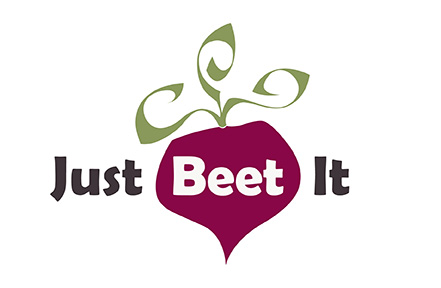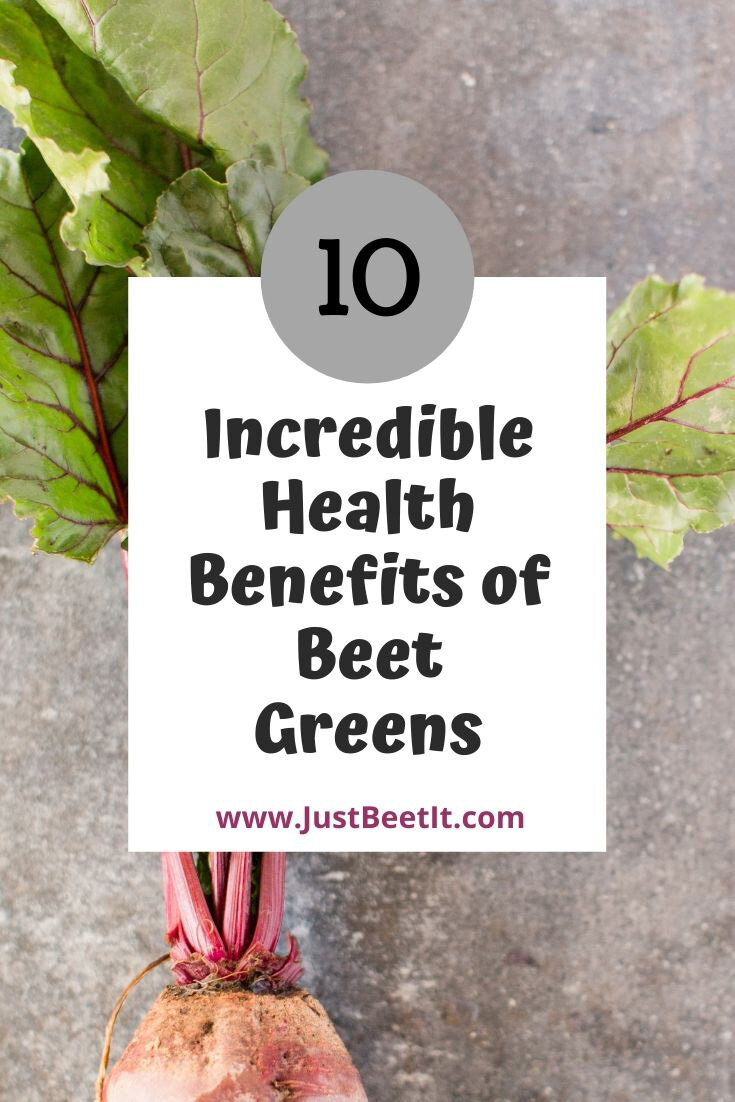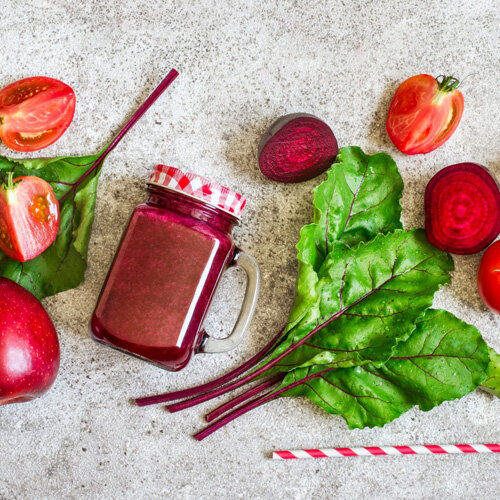Don’t throw away those gorgeous beet greens attached to the beetroot. The quirky beautiful beet is completely edible from root to leaf, and those luscious green locks atop the beetroot are tasty AND good for you! Eat your greens. Popeye would be proud.
Although you may be more familiar with the beetroot’s (the bulbous portion of the beet) incredible nutritional value, BEET GREENS are also filled with superhero nutrients. Beet greens boost immunity, lower blood pressure, improve mental health, strengthen bones, and more.
Historically, beet greens (the leafy tops of the beetroot) were used for their amazing healing properties as Hippocrates believed that the juice from beet leaf bindings would help heal wounds. Today, beet greens are used in various dishes from homemade Baked Beet Greens Chips, Ginger Stir-Fry with Beet Greens, or added to your favorite smoothie or salad.
Kale, spinach, and chard have gained a lot of attention in the last few years; however, beet greens deserve love too. Beet greens are high in nutritional value and are packed with vitamins, minerals, fiber, and antioxidants. There are so many amazing benefits to eating more beet greens. Plus - beet greens are so versatile, they can be eaten numerous ways, such as raw in smoothies, sautéed as a side dish, or steamed in soups.
When consuming leafy greens, buy organic when possible and follow these helpful tips for selecting quality beet greens.
Want to boost your nutrition and feel your best? Check out these 10 INCREDIBLE HEALTH BENEFITS OF BEET GREENS.
10 INCREDIBLE HEALTH BENEFITS OF BEET GREENS
1. BEET GREENS BOOST IMMUNITY
Beet greens are high in Vitamin C, essential for boosting immunity. Vitamin C plays a crucial role in helping improve your immune system and fight off cold and flu viruses. One cup of cooked beet greens contains almost 60% of your daily nutritional value with little to no sugars. Beet greens are also low in fat and calories.
2. BEET GREENS LOWER BLOOD PRESSURE AND BOOST CARDIOVASCULAR FUNCTION
Beet greens (and the infamous beet root) contain high levels of nitrates (the body converts to nitric oxide) which improve blood health and help lower blood pressure. Nitrates are also incredible for increasing oxygen levels and greatly improving cardiovascular function.
Studies show that people who consume supplements and foods (such as beet juice and beet greens) containing natural healthy nitrates have increased energy and cardiovascular function and reduced risk of heart disease.
Beet Greens Recipe: Super Cleanser Beet Greens Smoothie
3. BEET GREENS IMPROVE EYE HEALTH
Beet greens contain Vitamin A (Beta-Carotene) and Leutin, important for improving eye health. One cup of beet greens equals more than 100% of our daily required value of Vitamin A. We know the cartoon character Bugs Bunny ate carrots filled with Vitamin A for increased energy and eyesight; carrots aren’t the only vegetable with high concentrations of this valuable vitamin. Dark leafy greens, such as beet greens are rich with Vitamin A!
A study conducted by the Age-Related Eye Disease Study Research Group demonstrates that giving people (over the age of 50) a supplement that includes beta-carotene reduced their risk of developing advanced macular degeneration. In addition to Vitamin A, Lutein (a carotenoid with anti-inflammatory properties) is found in beet greens and can prevent age-related macular disease.
4. BEET GREENS STRENGTHEN BONES
You may have been taught from a young age that you need calcium for strong bones. Yup. Calcium, along with magnesium, Vitamin D, and Vitamin K are important for keeping bones strong. Rich in calcium, beet greens are awesome for strengthening the bones and warding off osteoporosis. For vegetarian, vegans, and those who prefer non-dairy foods, using leafy green vegetables like beet greens is a great way to add more calcium to your diet and strengthen your bones.
Vitamin K is also integral for building strong bones, and 1 cup of beet greens contains over 100% of your daily required intake. Why is Vitamin K important for the bones? “Vitamin K works with vitamin D to ensure that calcium finds its way to the bones to help them develop properly,” says Dr. Sherry Ross, a women’s health expert at Providence Saint John’s Health Center in Santa Monica, California.
Shared by Life Science, a “report by the Brigham and Women's Hospital and Harvard Medical School found that women who get adequate amounts of vitamin K in their diet are less likely to break a hip.” There are so many reasons to eat more beet greens!
5. BEET GREENS IMPROVE MENTAL HEALTH
Boost your mood and improve your mental health with beet greens. Vitamin B6 improves mood and boosts depression, and beet greens contain high amounts of Vitamin B6.
Research shared in the Integrative Medicine Insights discusses the importance and relevance of dietary nutrients for mental health. “Some of the earliest research studies on nutrients relevant to mental illness observed irritability and mood problems in people known to be deficient in the B vitamins, as well as reported positive improvements in mental illness when treated with such nutrients as manganese and nicotinic acid; regardless of whether or not the patients could be found to be deficient.”
Beet greens are also high in Vitamin K, which research indicates can reduce and limit damage to neurons in the brain. This means that Vitamin K may slow the progression of Alzheimer’s disease.
6. BEET GREENS BOOST BLOOD HEALTH
Containing more iron than spinach, beet greens improve blood health by preventing and treating anemia. Iron is a vital part of hemoglobin, the substance found in red blood cells that transports oxygen from your lungs throughout your body.
Many people suffer from an iron deficiency called anemia. If your body is low in iron, then you can’t make enough oxygen-carrying red blood cells. Every cell in your body needs iron, and beet greens are a rich source of iron to improve your blood health!
Beet greens are also high in Vitamin B6, a vitamin that is vital for creating red blood cells and neurotransmitters.
7. BEET GREENS HELP CREATE HEALTHY SKIN
Want clear healthy skin? Add beet greens to your diet. Beet greens are high in Vitamin C and also detoxify the liver for promoting clear glowing skin. The antioxidant properties of Vitamin C help promote collagen production which is vital for skin health. Beet greens are also filled with fiber to keep you regular and help flush out the body’s toxins and waste to help keep your skin clear and healthy.
8. BEET GREENS IMPROVE DIGESTIVE HEALTH
High in fiber, beet greens improve digestion and improve chronic constipation. Boost your fiber intake with leafy greens, fruits, and vegetables to stay regular.
Besides being bulky in both soluable and insoluable fiber (essential to healthy digestion), beet greens help your gut by encouraging healthy bacterial growth throughout your digestive tract. Beet greens (and other dark leafy green vegetables) are like superhero prebiotics, by naturally stimulating good gut bacteria; a happy gut is vital for health!
Gut Health Recipes: 30 Fermented Food and Drink Recipes for Better Gut Health
9. BEET GREENS PROMOTE HEALTHY TEETH
Beet greens are high in calcium, magnesium, and Vitamin D for promoting strong teeth. Foods high in calcium and magnesium help to build strong enamel which prevents cavities. Vitamin D is essential for aiding calcium absorption. Improve the health of your teeth by eating more foods (like beet greens) rich in calcium, minerals (like magnesium), and Vitamin D.
10. BEET GREENS SUPPORT A HEALTHY PREGNANCY AND PRE-NATAL CARE
Beet greens are SUPER rich in Vitamin B9, Folate which is necessary for both adults and infants as it regenerates red blood cells in the immune system.
During pregnancy, folate (vitamin B9) is vital for ensuring healthy growth of the baby’s cells and tissues. Ensuring you meet the recommended daily intake of folate when pregnant lowers your baby's risk of certain congenital disabilities and neurodegenerative disorders.
Research indicates that naturally consuming folate through foods has a better absorption rate. Therefore, eating beet greens and other foods high in folate is important and beneficial for the health and growth of your baby.
For a quick and easy beet greens recipe, try Superhero Sautéed Beet Greens or Minty Shamrock Vegan Smoothie with Banana and Beet Greens.
Looking for more ways to eat beet greens? Check out: 15 CREATIVE WAYS TO USE BEET GREENS.
MORE BEET GREENS HEALTH TIPS / CONCERNS
For individuals with existing and/or untreated kidney or gallbladder problems, you may want to avoid eating large amounts of beetroots and beet greens. Like many other healthy foods, beets (notably beet greens) contain amounts of oxalates (naturally occurring substances found in plants, animals, and human beings).
For those concerned with or sensitive to oxalates, a quick flash boil (1-2 minutes, also known as “blanching”) will reduce the oxalates levels.
Beet greens are high in Vitamin K, so if you are a patient taking anti-coagulants (such as warfarin), you may be encouraged to avoid dark leafy greens. As always, if you have dietary or health concerns, please check with your physician. See Just Beet It's "Disclaimer" under Legal for further details regarding physician care.
Resources
Bradford, Alina. (2015). Vitamin K: Sources & Benefits. Life Science Publication. Retrieved from https://www.livescience.com/51908-vitamin-k.html.
Cornish, Stacey. et al. (2008). The Role of Vitamins and Minerals in Psychiatry. Retrieved from https://www.ncbi.nlm.nih.gov/pmc/articles/PMC3046018/.
Iron and Your Health. (2015). Harvard Health Publishing. Harvard Medical School. Retrieved from https://www.health.harvard.edu/staying-healthy/iron-and-your-health.
Nutrition Data. (2014). Retrieved from https://nutritiondata.self.com/facts/vegetables-and-vegetable-products/2353/2.
Robinson, Jo. (2013). Eating on the Wild Side. New York: Little, Brown and Company.
Splittstoesser, W. E. (2014). Beet. In Public Libraries. Retrieved from http://www.worldbookonline.com/pl/infofinder/article?id=ar052980.
Stanaway, Luke. et al. (2017). Performance and Health Benefits of Dietary Nitrate Supplementation in Older Adults: A Systematic Review. Retrieved from https://www.ncbi.nlm.nih.gov/pmc/articles/PMC5707643/.
YOU MAY ALSO LIKE













